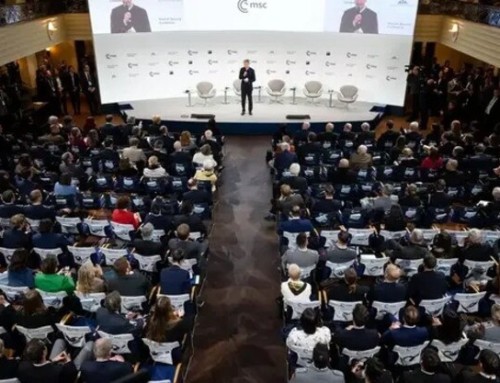Over the weekend, we saw protests against austerity across Spain. This comes after a report last week that the number of unemployed people in Spain surpassed 5 million. Also during the last week, large protests occurred in Portugal, another European country strongly hit by the economic crisis. However, Portugal has been the favorite of the troika, because the Passos Coelho government applied austerity during a relatively stable political situation, with the opposition unpopular and the unions split. But the Portuguese people, tired of austerity, are now openly demanding that the government step down. After the protests, Portuguese President Anibal Cayaco Silva — though he was probably aware that he is one of the targets of the protests — said that “the voices that made themselves heard simply cannot be ignored.”
Portugal and Ireland are asking for more time to repay their bailout loans. Portugal is due to complete its rescue program in 2014 but Lisbon and Dublin are trying to use Greece — which got concessions in 2012 — as a precedent to demand equal treatment. EU Economic and Monetary Affairs Commissioner Olli Rehn said last week that EU finance ministers could commit next month to giving Ireland and Portugal more time to repay their bailout loans. It is likely that conditions will be loosened, since the European Union wants to show how bailout countries are recovering and able to return to international markets. Moreover, the European Union is becoming more and more aware that the austerity measures are causing growing social unease, especially in Portugal.
News of leaders criticizing the EU for its austerity policies also came from France last week. France has enjoyed relative stability during the crisis, but French Finance Minister Pierre Mosovici is very much aware of the potential for extremist political groups to rise in popularity. He said that continuing a strict course of spending cuts and tax increases would only “nourish a social crisis that leads to populism.” Moreover, Moscovici referred to Italy’s election result as “a message” that the current pace of budget cuts and structural reforms without a credible growth strategy is not sustainable and will ultimately backfire. Italian elections and UK euroskepticism also inspired far-right politician Marine Le Pen to repeat the idea for a referendum on France’s membership in the European Union. She first called for the referendum during last year’s presidential election has now put a date on it — January 2014 — and added that if the French president doesn’t allow it, her party will turn the next European parliamentary elections into a referendum. Considering the claims coming from both opposition and government, we can well say that both are uncomfortable with France’s role in the European Union.
While reports that the United Kingdom is studying how to reduce immigration are no longer surprising, when Germany and Finland said last week they will vote against Romanian and Bulgarian accession to Schengen, many interpreted the move as being fuelled by internal fears of increased migration coming from the non-EU states east and south, which could weaken the national social security systems of the EU core countries.
All these are underlying the general worry in Europe that the current status quo could deteriorate into a continent-wide political crisis that may put into question the existence of the EU as it is today. As Stratfor’s George Friedman said in his last analysis on Europe:
“The crisis of unemployment is a political crisis, and that political crisis will undermine all of the institutions Europe has worked so hard to craft. For 17 years Europe thrived, but that was during one of the most prosperous times in history. It has now encountered one of the nightmares of all countries and an old and deep European nightmare: unemployment on a massive scale. The test of Europe is not sovereign debt. It is whether it can avoid old and bad habits rooted in unemployment.”
In the European periphery, so far we have seen people angry with their national leaders and tired of austerity that affects their lives directly. We have not seen any significant demonstrations against the euro, the common European currency. On the contrary, while polls show that Greeks are tired of feeling the results of austerity, they still don’t see leaving the Eurozone as a solution to their pain. Similarly, Italians have voted against their mainstream politicians but only a few Italians want the lira back. This shows that the politicians still have some room to maneuver to “fix” things at the EU level. Once a significant segment of the population starts calling for their countries leaving the eurozone, we should worry. That’s the moment when social problems will indeed pose a dramatic question to the very existence of the EU. And the question will most probably be answered by populist parties, which always benefit from social unrest…






Leave A Comment